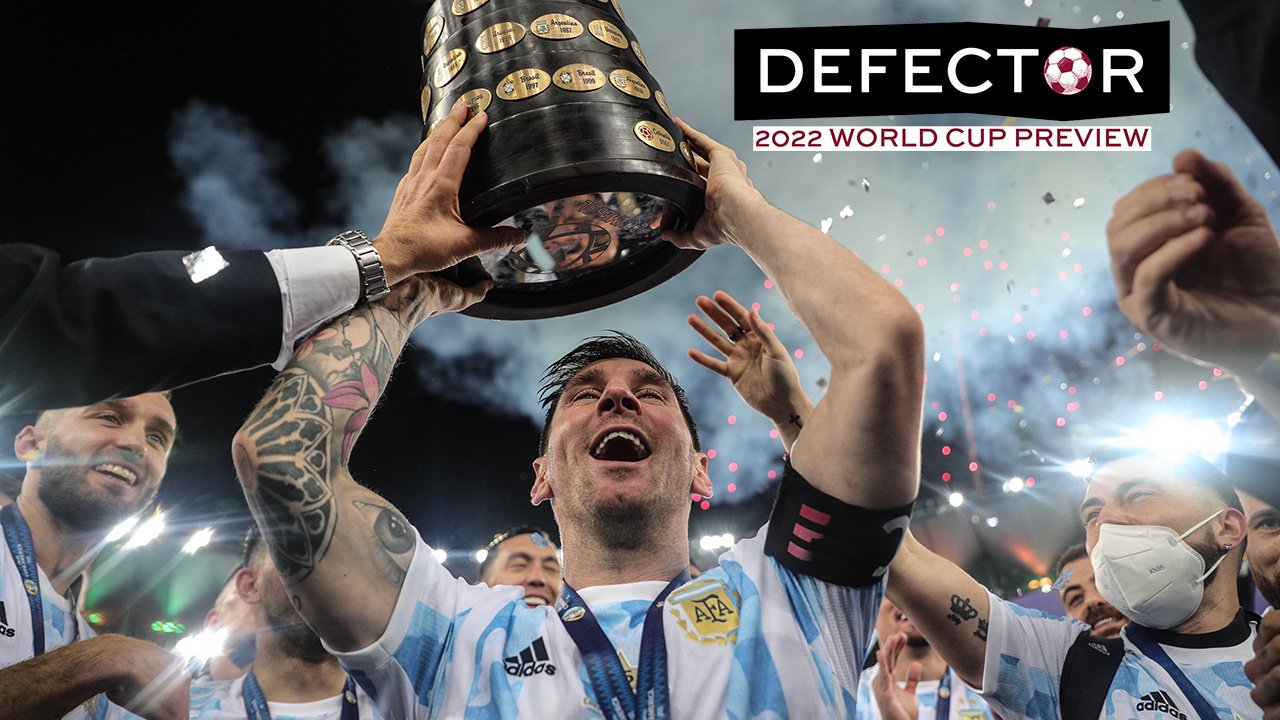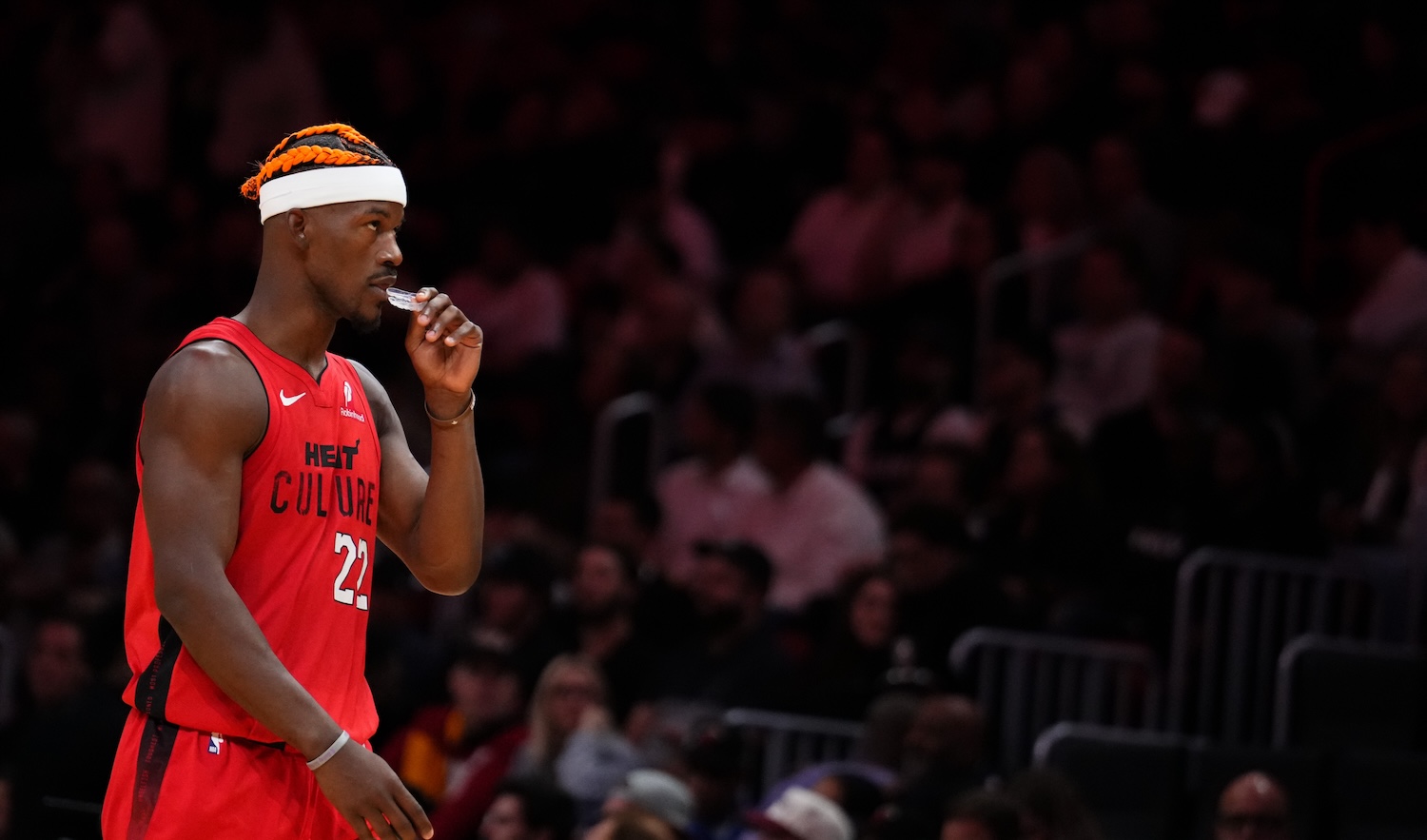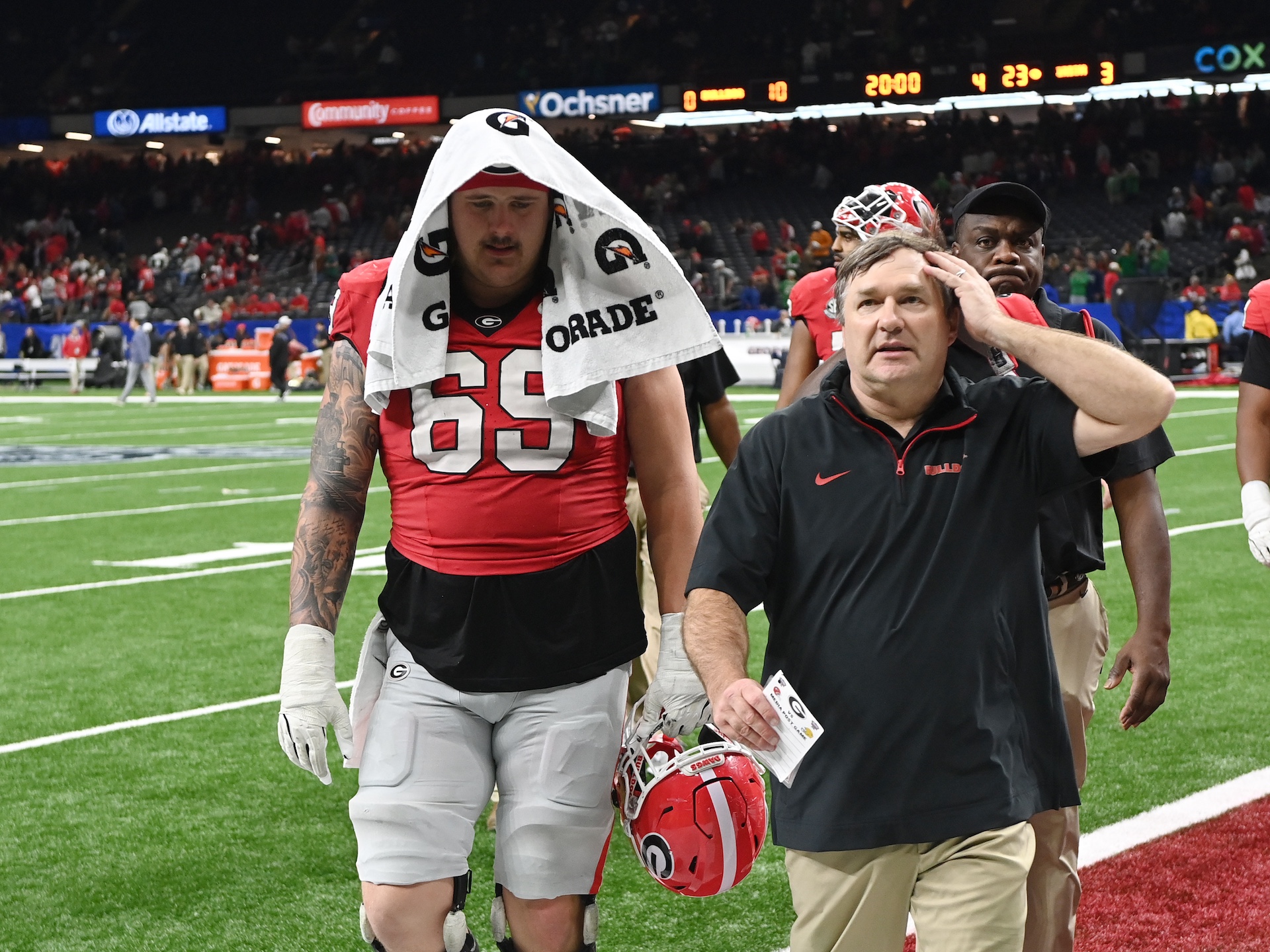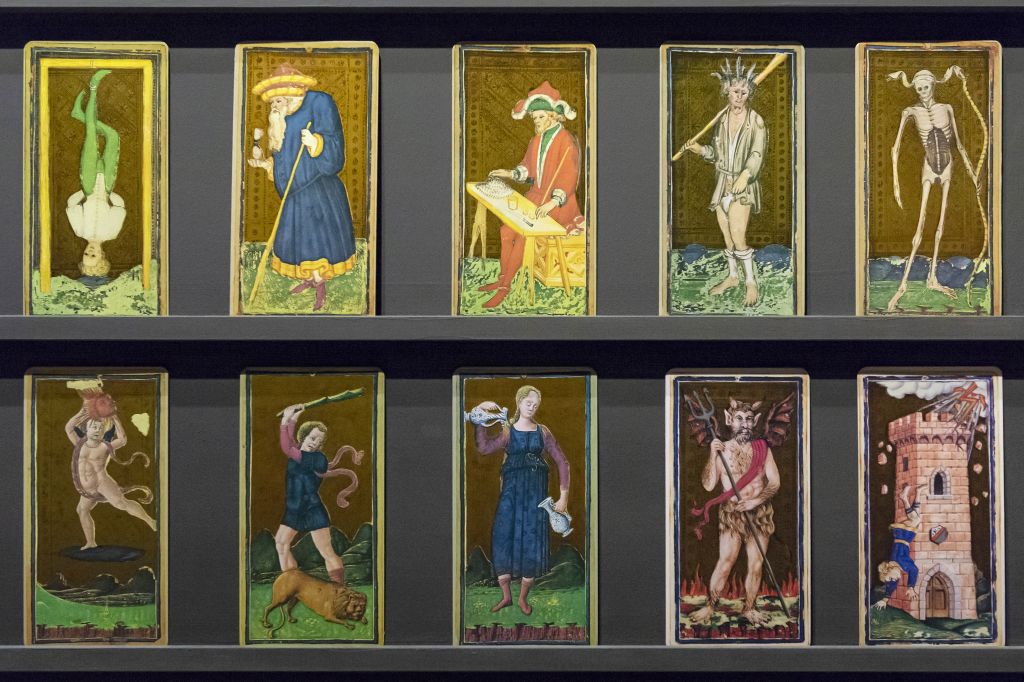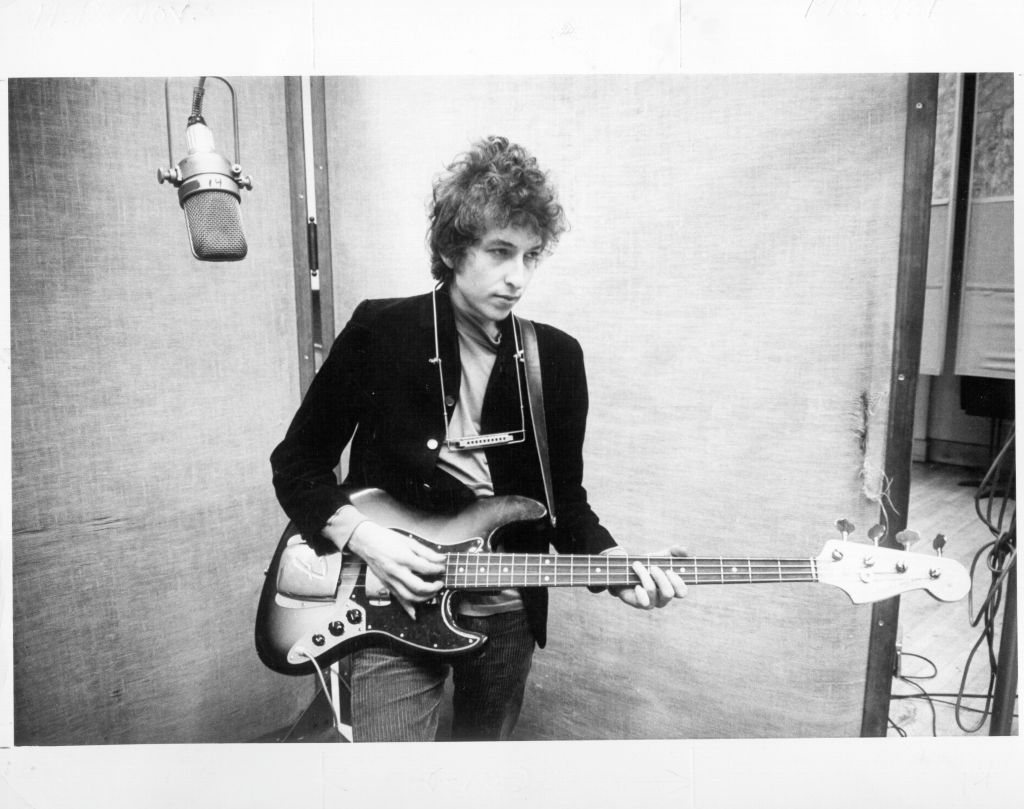It’s almost time for the 2022 World Cup. To help get you ready, we will be providing you with precious information about every team in the tournament. You can read all of our World Cup previews here.
Argentina enters the 2022 World Cup in incredible form: the team has not lost in three years, and it won the most recent major international tournament that it competed for, last summer's Copa America. This is a well-drilled team, with steady if unspectacular performers at every level of the field. It comes into the World Cup without too many impactful injuries, as well; its biggest loss might be Paulo Dybala, the Roma do-it-all forward who injured his quadriceps in October, but who has never quite fit in the national team's plans. (He might be healthy in time for the World Cup, but that's perhaps wishful thinking.) Oh, and Argentina has Lionel Messi. That counts for something.
Messi is the storyline, the alpha and the omega of not just Argentina's journey, but the 2022 World Cup as a whole. After shaking off the major international trophy burden by winning the Copa, as the best player in that tournament, Messi comes into Qatar with one last mission in mind: winning the World Cup. It's something that has eluded him in four previous tries, but he's never had a team like this around him.
A big part of Argentina's recent success comes from manager Lionel Scaloni, who took over for Jorge Sampaoli after the 2018 World Cup. Scaloni has not tried to reinvent the wheel, and instead has implemented a system that is sturdy from top to bottom, while allowing Messi and his fellow attackers the freedom to bring the game to opponents. To be sure, Scaloni has lucked out with the development of some younger players, but this is just smart international management. He knows his teams strengths and weaknesses, and he has created a gameplan that plays to the former while minimizing the latter.
All of this has combined to make Argentina one of the favorites in Qatar. On paper, Brazil and France, and maybe even England, are better teams, but none are as well-coached or well-suited for international success as the albiceleste. That might not translate directly into glory, but if its roster of workmanlike defenders and midfielders can hold off opponents as well as they have been for three years, then Messi will have the freedom to dominate games in the final third. As he has shown over his long career, this is all he needs to be his best, and with the extra motivation of the World Cup in play, it's possible that this month in Qatar will be his final, crowning achievement as the best player soccer has ever seen. He, and Argentina as a whole, has never had a better opportunity to win it all.
Who Is Their Main Guy?
It's Messi. Of course it is. He's perhaps the Main Guy in the entire World Cup, one that he has said will likely be his final appearance at the world's biggest tournament. There's a narrative that claims Messi hasn't done it at the World Cup, whatever that means, but in two of his three appearances as the undisputed star of Argentina, he has done what the team needed, until the team needed just too much from him. (The less said about Argentina's debacle at the 2010 World Cup, the better.) In 2014, he and Javier Mascherano carried a messy and injured Argentina side to within misses from Gonzalo Higuaín and Rodrigo Palacio of a World Cup title. He won the Golden Ball award for the best player in the tournament, and scored four of Argentina's eight goals en route to the final.
In 2018, a similarly chaotic Argentina side didn't have a real shot at the trophy, and in fact looked like it would be knocked out in the group stage after a draw against Iceland—Messi missed a penalty kick—and a demolition at the hands of Croatia. With Nigeria blocking its way to the knockout rounds, Messi got to work with one of the best ball controls and scores you will ever see:
Though Nigeria tied it up in the 51st minute, Argentina scooped up the win off a Marcos Rojo winner in the 86th. Its reward was a 4-3 loss in the round of 16 to eventual champions France, in what was the best match of that tournament. Now, Messi is back, at the age of 35 and no longer a Barcelona player. Instead, he has shaken off a slow start at Paris Saint-Germain and become Lionel Messi once again. Alongside Neymar and Kylian Mbappé, Messi forms the creative focal point of the world's best attacking trio. He's not as fast as he was, and he definitely does no work on defense at his old age, but he's still capable of doing things on the soccer field that defy explanation.
For Argentina, he will have to do just a bit more, particularly as he plays centrally and in more of a concrete playmaker role. Luckily for both the team and the country, Messi has not lost a step there, and should have enough runners and shooters in front and around him to elevate Argentina from a one-man team and into a well-oiled machine. Whether that's enough to win the World Cup that has eluded him since he debuted in the 2006 edition of the tournament will remain to be seen, but for once, Messi is only the main guy and not the only point around which an entire team rotates.
Who Is Their Main Non-Scoring Guy?
Part of the reason that Messi won't have to do it all is that this Argentina defense is finally, thankfully, a strength. The biggest X-factor for the backline also has the potential to be the most important player on the team. Tottenham Hotspur center back Cristian "Cuti" Romero is just 24 years old, but he's already solidified himself as one of the best young center backs in the world. Perhaps more importantly, he is Argentina's best option to shut down opposing strikers, such as Mexico's Raúl Jiménez and Poland's Robert Lewandowski, both opponents in the group stage.
Romero is a modern center back, comfortable both with the ball at his feet and when defending one-on-ones. He steps up into challenges a lot (a lot), which can leave him out of position when he misses. However, Romero has pace to boot to catch up if he does make a mistake. He's not the biggest center back in the field—only 6-foot-1—but he plays bigger than that, particularly when it comes to muscling opposing attackers off the ball. If Romero plays as he has at his best for Tottenham, Argentina will be able to continue its impressive defensive showing of recent years under Scaloni.
Where's The Beef?
Which teams or players does Argentina not like? Do Argentina's players like each other? We investigate Argentina's potential enemies.
There's a shout here for Lionel Messi's philosophical battle against the ghost of Diego Maradona's 1986 World Cup. He's been battling that specter his whole career, after all. That's more of a beef subplot, though, because the luck of the draw has gifted this tournament with the potential for an all-timer of a semifinal. If things shake out as expected, Argentina will have to go through its hatred rivals of Brazil in the semifinal round of the World Cup.
The history of the Argentina-Brazil rivalry is vast, too vast to summarize in a few paragraphs. The two best countries in South American soccer, the neighbors—they share a 761-mile border at Argentina's north end—have played 109 times in its history, in a pretty even rivalry: 43 wins for Brazil, 40 for Argentina, and 26 draws. However, Brazil has five World Cups to Argentina's two, something that chafes fans of the albiceleste on a seemingly daily basis.
Matches between these two giants are appointment viewing, and often happen at moments with the highest stakes. The last competitive meeting between the two was at the 2021 Copa America final, a match that saw Argentina finally win its first international trophy since the 1993 edition of the tournament, and a match that gave Lionel Messi his first major senior title with Argentina. (He had won the 2008 Summer Olympics with the side, but the "major" tag is really reserved for the Copa and the World Cup).
If both teams win their respective groups—something that is more than likely—they would be on a collision course for the semifinal in Lusail on December 13. The closest that these two sides have gotten to playing that deep in the tournament was in 2014, when Argentina made the final and Brazil lost 7-1 to Germany in that infamous semifinal. There's a possibility that either team gets upset before we get this clash of titans for a spot in the World Cup final, but both countries will feel heavily favored in all of their matchups before then.
For the sake of peace in the region and in the stands, that might be the best outcome. For those who want an intense, emotionally charged showdown between the two best teams in the tournament, though, the prospect of an Argentina-Brazil semifinal is one of the best parts of this upcoming World Cup.
Most Likely To Go David Ospina Or James Rodríguez Mode
Who is the Argentina's best candidate for a breakout performance that earns them a career-changing transfer? Might this potential post-tournament transfer go well, like when Colombia's James Rodríguez went to Real Madrid after starring in the 2014 World Cup? Or could it go poorly, like when Colombia's David Ospina went to Arsenal after starring in the 2014 World Cup?
Enzo Fernández is the type of midfielder that Argentina is not really known for. Despite playing as a defensive midfielder for Benfica, he is not of the rugged ballhawk archetype that Argentina has produced so often (think Javier Mascherano for that type of player). Similarly, he is not a classic playmaker, the Argentine No. 10 that has a glorious history in the country (Messi, Maradona, Pablo Aimar, Juan Roman Riquelme, the list goes on). Instead, Fernández is more of a Spanish-style midfielder, incredible with the ball at his feet and runners around him.
This doesn't mean Fernández can't play in a more defensive role for Argentina. His ball awareness and interceptions make up for his lack of physical defensive tools, and while he's not the best tackler, he's not scared to get in there to bust up attacks. His value will come mostly from his progressive passing from deep in the midfield, though, as well as his long-range shooting.
These skills have made him one of Benfica's most exciting prospects, and at just 21 years of age, Fernández could be one great World Cup away from a big-money move to one of the big five leagues. He's not a player to fit into any midfield opening, but if a team needs possession and creativity for the middle of the park, Fernández is worth the risk that comes with his age and inexperience. It's unlikely that those skills won't translate to other leagues, but it's also not a sure thing that he will dominate games as he has for Benfica this season, or for River Plate back in Argentina. For that reason, his score is somewhere between Ospina and Rodríguez mode, yet his potential makes him a candidate to be the next great Argentinian plying his trade at a huge club.
David Ospina Mode Probability Score: 30.7
James Rodriguez Mode Probability Score: 68.1
Fun Geographical Fact
Perhaps due to its close proximity to the much-larger Brazil, it was surprising to learn that Argentina is actually the eighth largest country in the world by land mass. Is that fun? I don't know, but I didn't know it, so there you go.
The country also has the tallest mountain in the Americas, the Southern Hemisphere, and the world, if only you wipe out Asia for that last part. Aconcagua measures a whopping 22,838 feet at its peak, and it has the highest death rate of any mountain in South America (around three people die per year trying to climb it).
Good Flag Or Bad Flag?
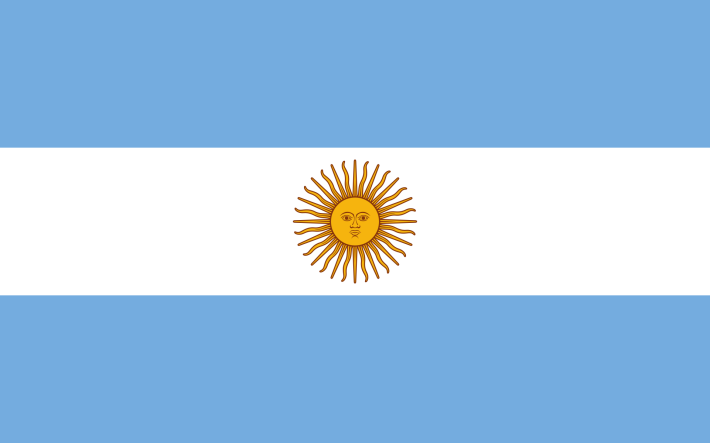
This is one of the best flags in the entire world. The blue is a pleasing hue, the sun is perfect, I really have nothing bad to say about Argentina's masterpiece of a flag.
Good Anthem Or Bad Anthem?
Oh, hell yeah. This sounds like an opera I would not fall asleep during—sorry to that one time I went to see La bohème—and the lyrics are all about breaking off the shackles of imperialism. No one does national anthems like my South American brethren. I guess that's the reward for centuries of empire-aided turmoil.
Notable Moment In World Cup History
Argentina has won two World Cups, lost two other finals, and generally has had its share of ups and downs throughout the many years of the tournament. Still, though, there were only two real choices for this section, and both came in the same game, a quarterfinal at the 1986 World Cup. It's Diego Maradona time, because who else could it be?
It's hard to pick between Maradona's two goals that trumped England's one en route to the semifinal, and eventually the trophy. The Hand of God goal is the more controversial of the two, and perhaps the more iconic one: In the 51st minute of that match, Maradona released a give-and-go ball that flopped into the air, where the tiny—he was 5-foot-5 at best—demigod found it with nobody around him. He leaped into the air and, uh, definitely headed the ball in. Definitely didn't use his hand, no, sir.
With the score opened in such a vexing manner, Maradona got to work again. Just four minutes later, he picked the ball up in his own half and proceeded to create not just his best moment as a player, but perhaps the greatest individual goal of all time. At the very least, it is known as the Goal of the Century, and given the stakes, the individual skill, and the cult of personality around Maradona, it's hard to argue with that moniker. Over the next 10 seconds and 60 yards, Maradona dribbled four English defenders before shaking goalkeeper Peter Shilton out of his boots for a tap-in.
This goal is both so good and so legendary that when Lionel Messi scored an eerily similar goal for Barcelona, it was shown as proof that he was Maradona reincarnated. (Maradona was still alive at the time, but that didn't stop anyone.)
Argentina would go on to beat Belgium in the semifinal by a score of 2-0 (Maradona scored both goals, of course), before toppling West Germany 3-2 to lift its second World Cup title in eight years. Maradona was never better than he was in the 1986 World Cup—has anyone ever been better, period?—and he was never more in his element as a world-beating whirlwind of dribbling magic than he was in those 10 seconds against England.
How Can They Win The World Cup?
This is the best Argentina World Cup team since Messi burst onto the scene. Not a lot has to break right for the albiceleste to win the title that has eluded it for 32 years, at least not beyond the usual lucky breaks that a World Cup-winning side needs to make it through the group stage and four knockout matches. Messi isn't exactly at his peak, but as the team proved last year in the Copa America, he doesn't need to be his world-beating self anymore. Argentina has plenty of weapons around him, and a defense worthy of its attacking talents. The hardest challenge might just be that aforementioned Brazil semifinal, but there are no glaring red flags for Argentina this time around. It's not exactly the best team in the tournament, but it's damn close, and that just might be enough.
